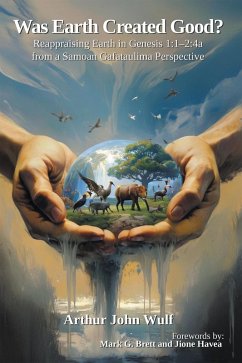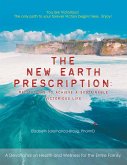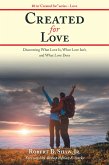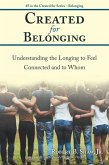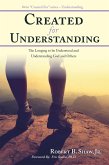Was Earth Created Good? offers a reappraisal of Earth as presented in Genesis 1:1-2:4a from a Samoan gafataulima (accomplish/fulfill/capable) hermeneutical perspective. The inspiration for the study arose out of a personal dilemma concerning author Arthur John Wulf's religious beliefs and the reality he is experiencing in the world today-specifically, the tensions between Earth's perfect portrait in Genesis 1:1-2:4a and the recurring natural disasters he suffers from in his Samoan local context. Attention to his ecological situation gave rise to questions that challenge the repeated divine evaluation of Earth as "good" in Genesis 1:1-2:4a. These questions identify the need for context-specific hermeneutical frameworks that take into account local ecological situations in the interpretive process. In this light, Wulf proposes the Samoan cultural concept of gafataulima as an ecological hermeneutic to reevaluate the quality of Earth as presented in the Genesis 1:1-2:4a creation narrative, using the Samoan version of narrative-grammatical criticism, which he refers to as a tala-mamanu reading. Discussions throughout seek to carefully balance the exploration of the text's historical significance within the wider framework of Wulf's Christian faith. Drawing on a rich array of biblical scholarship, this study explores the significance of God's declaration that the created Earth was "good" in light of the ongoing challenges of natural disasters faced by the people of Samoa. "I believe Arthur J. Wulf's book will be an important piece of scholarship from which biblical scholars will benefit greatly." Dr Caroline Blyth The author's meticulous attention to cultural context and ecological relevance makes this work a pioneering contribution to theological scholarship and practical environmentalism. Rev Dr. Samasoni Moleli. In this great work, Arthur Wulf shows another example of a biblical interpretation that considers the reader's world now, bringing a new dimension into reading the creation story in the Bible. It is not the opportunity to impose his meaning on the text, but to recognise that meaning-making is shaped by the questions and issues he brings from his contemporary situation and takes back to that situation. I recommend this excellent book to Bible readers who practise using their life experiences from their worlds as hermeneutics to explore the Bible. Rev. Prof. Vaitusi Nofoaiga
Dieser Download kann aus rechtlichen Gründen nur mit Rechnungsadresse in A, D ausgeliefert werden.

